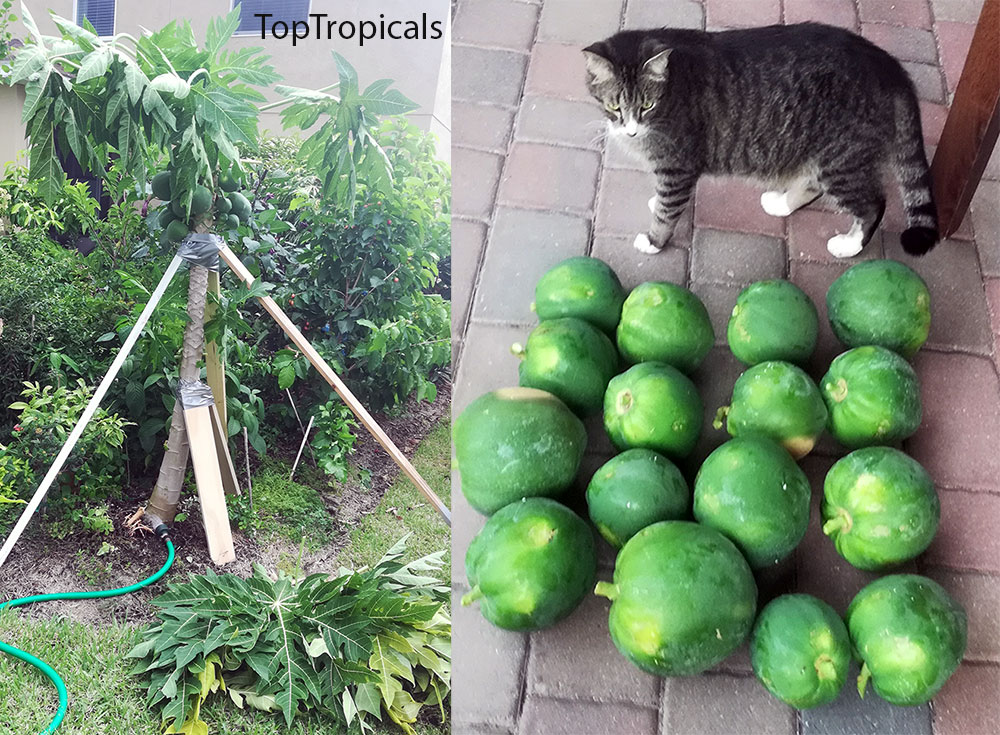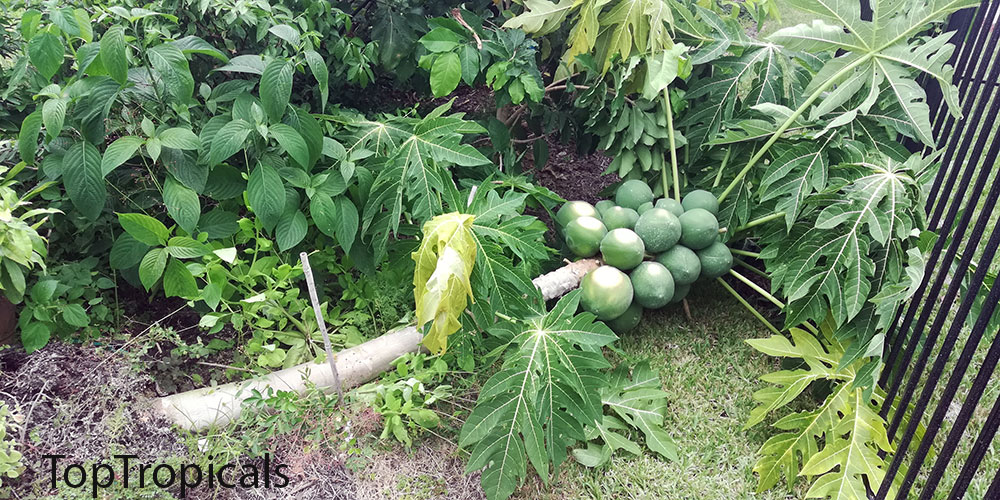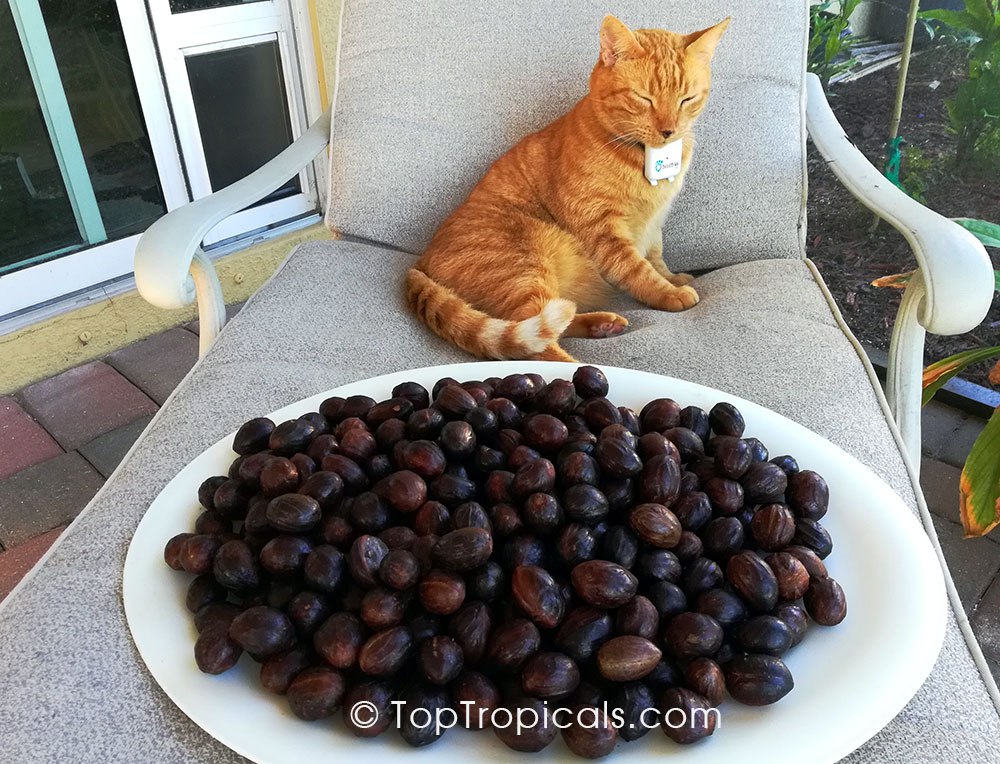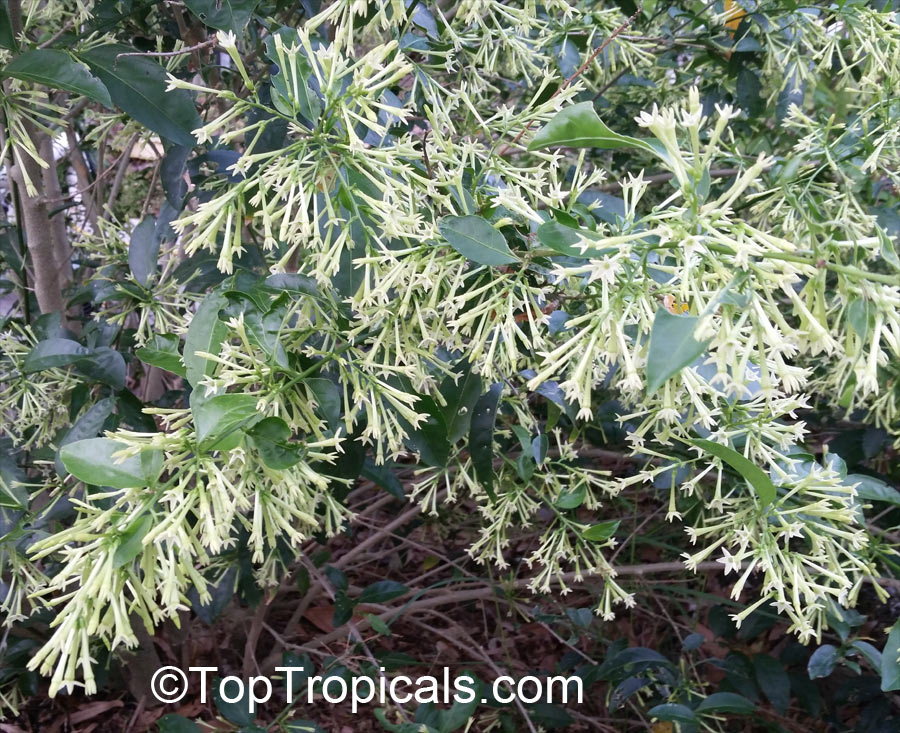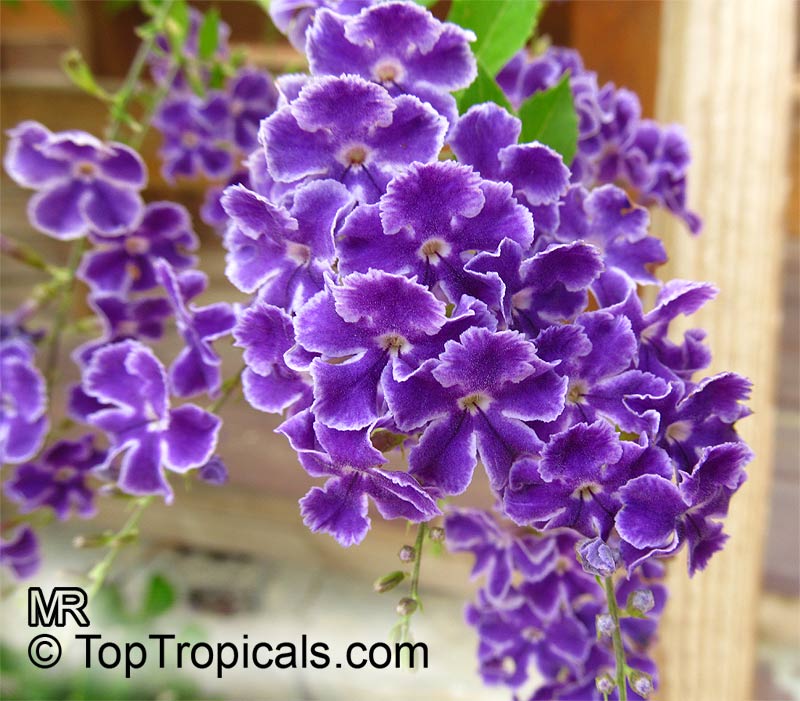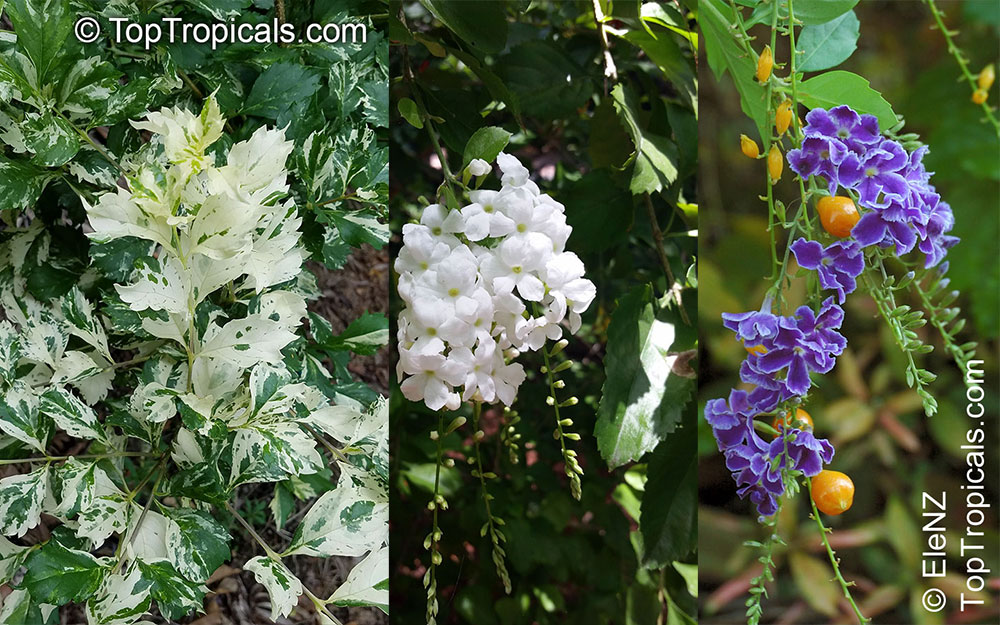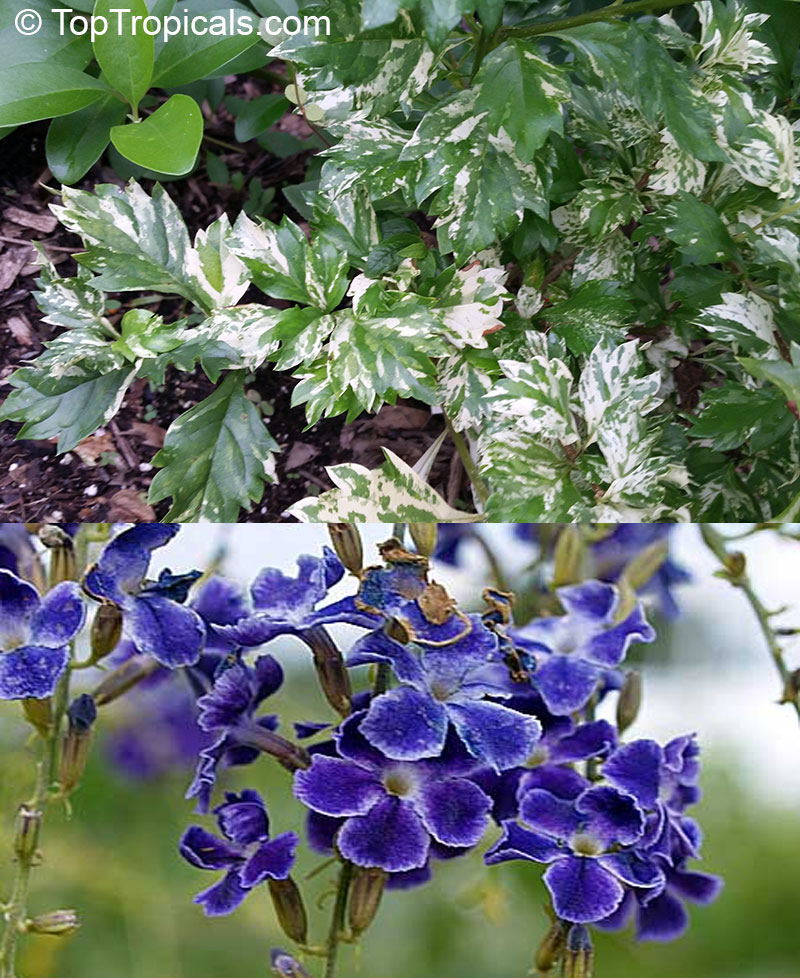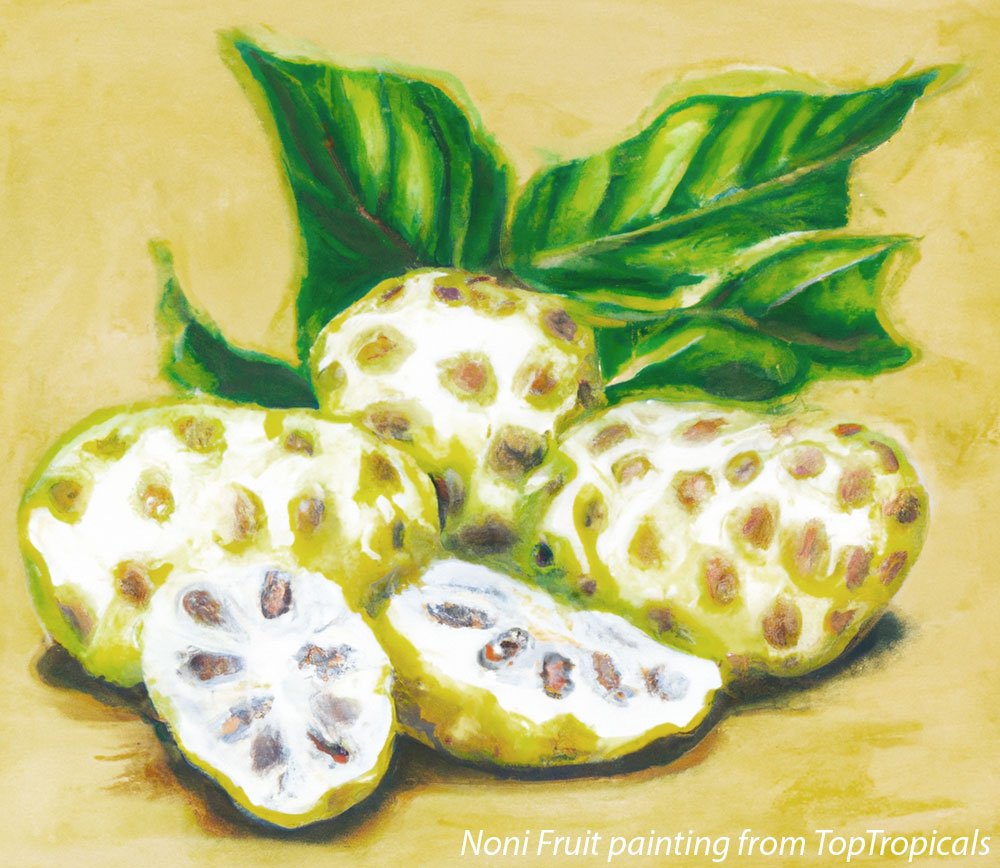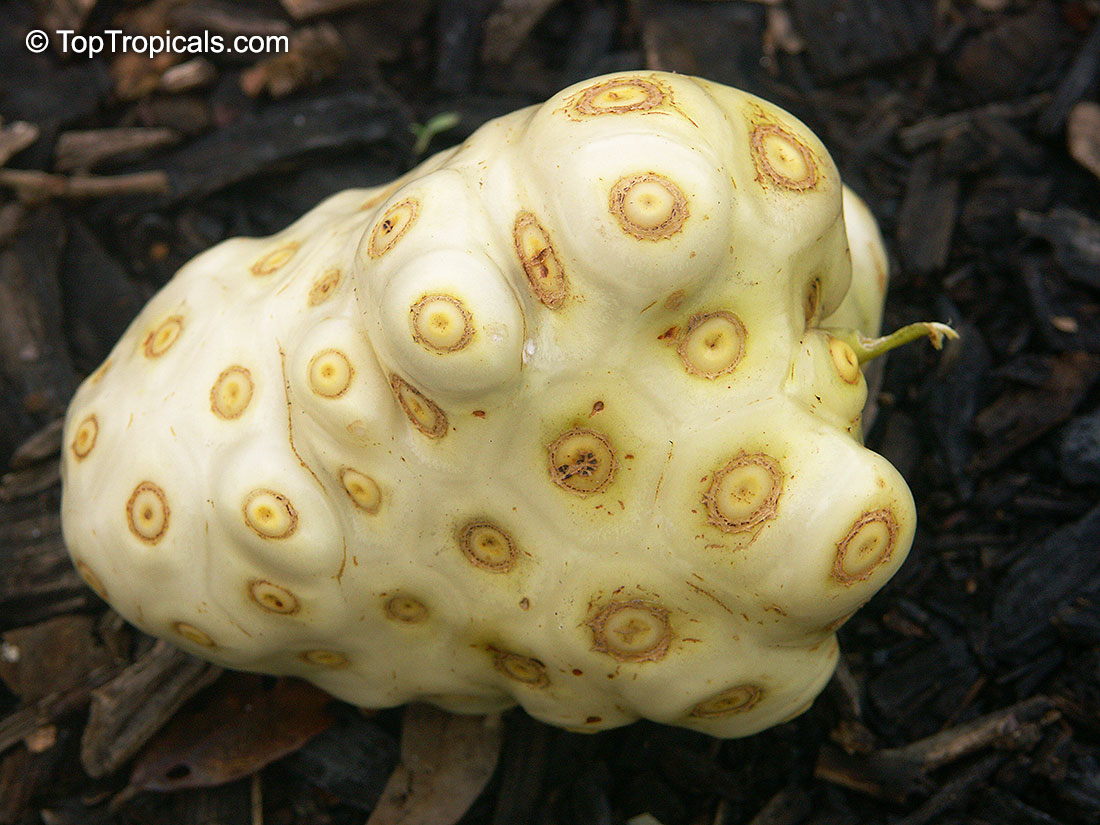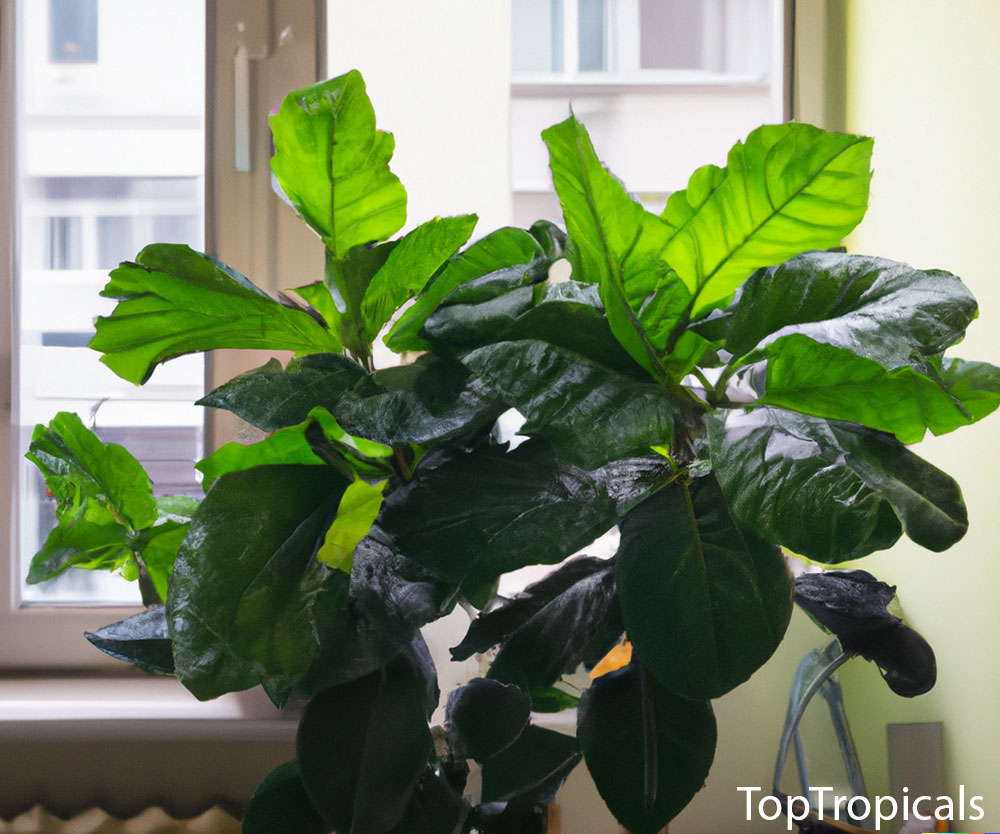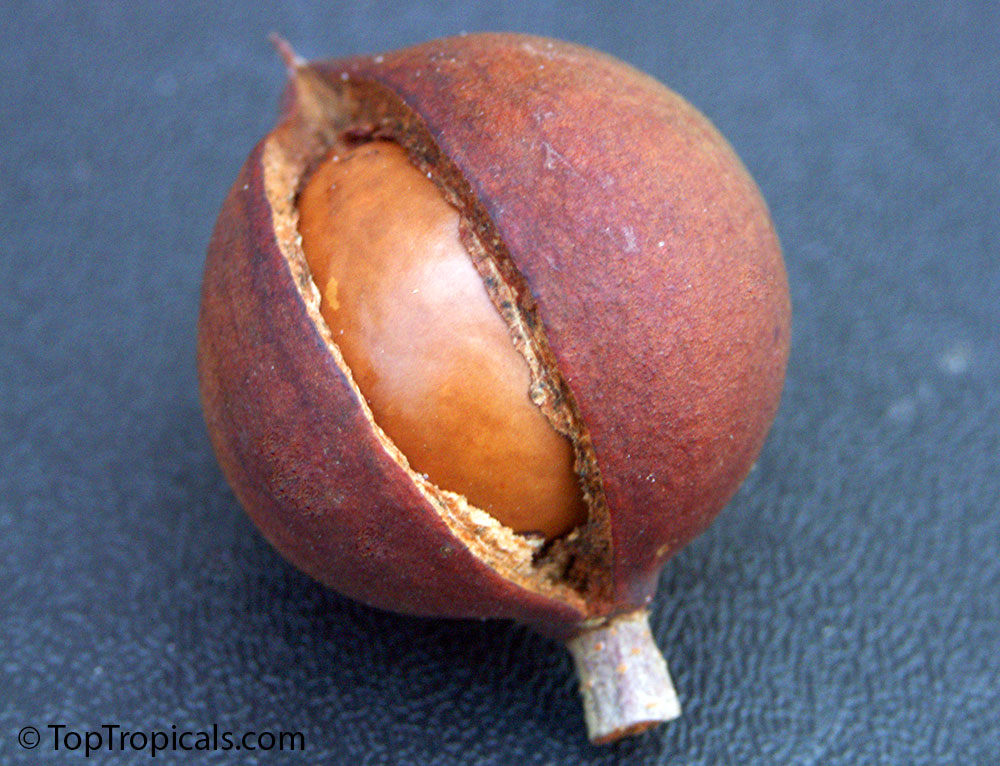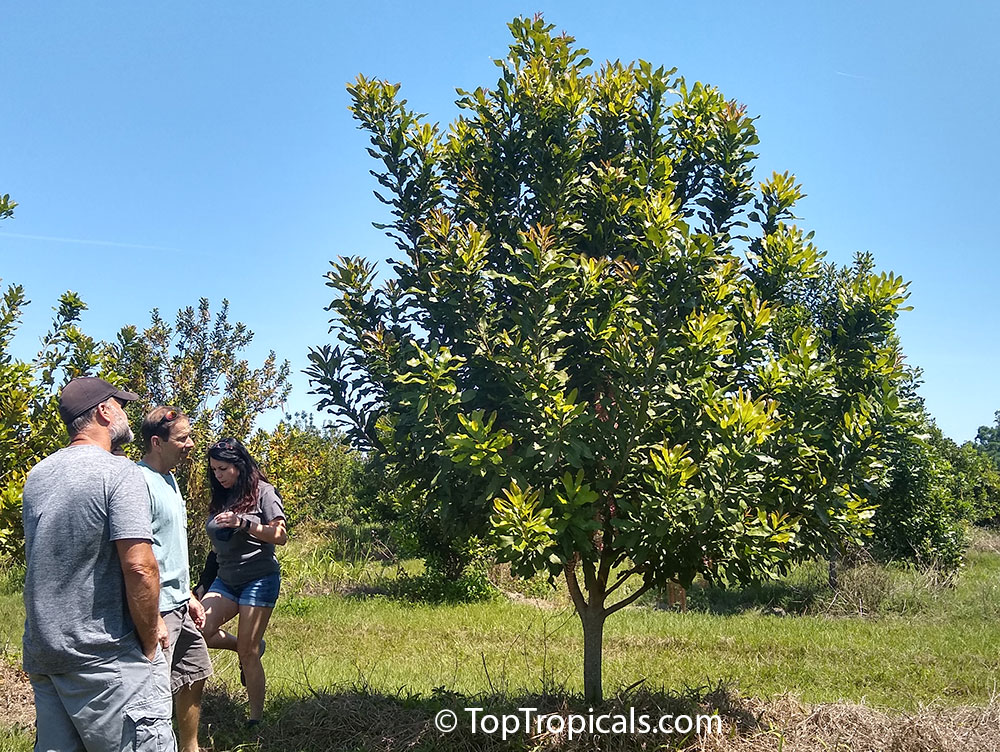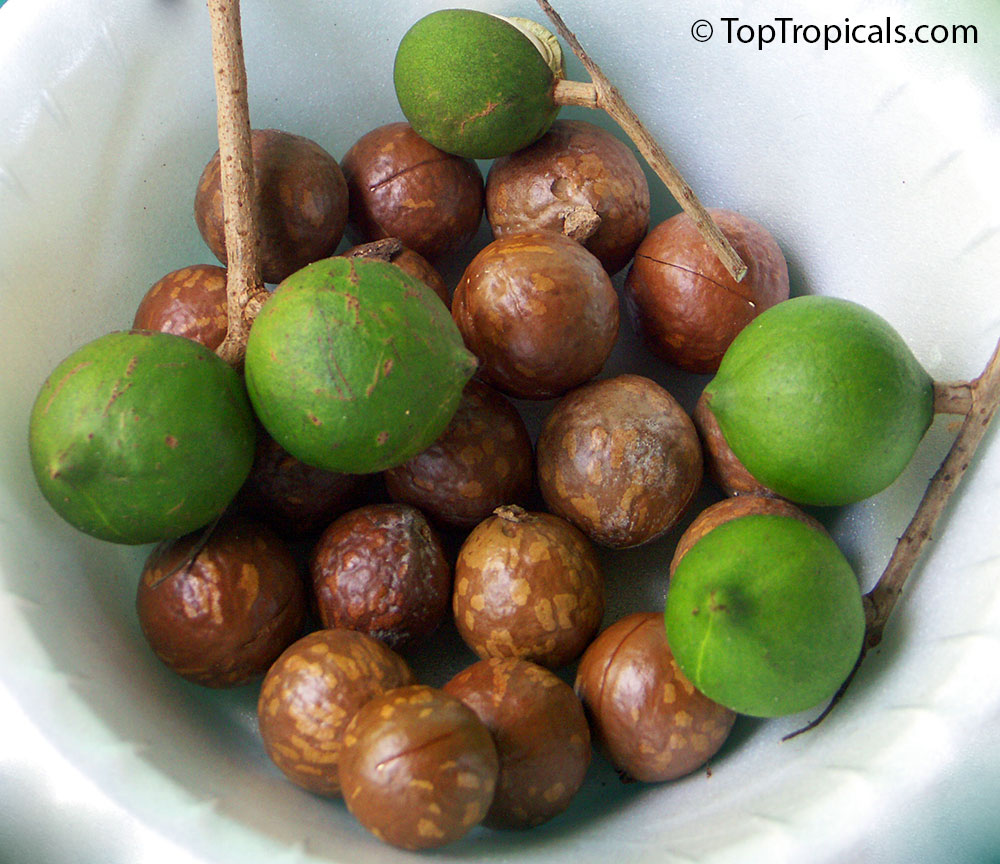Garden Blog - Top Tropicals
Date:
Saving Fallen Papaya Tree
Q: Hope there is help for my beautiful amazing papaya tree! There where a loooooooot of fruits on it, but it broke! First of all, it was leaning and friends tried to straight my beautiful tree. What can I do? Will it get fruits again?
A: A couple months ago we also had a Papaya tree loaded with
fruit that fell down (see photos). It was heart-breaking. We secured it and it
continued growing for a couple of weeks but unfortunately, at the end the tree
still died, leaving us a million fruit.
The Papaya tree has a very sensitive root system and is hard to
re-establish once the roots are damaged.
However, if it just has a broken top, it has a good chance to grow back
from the side shoots.
Of course, remove all the fruit so they don't take energy from the
recovering tree.
When a tree is loaded with fruit, it is important to provide support for
heavy branches and for the trunk if needed. Always support the fruiting tree to
prevent from possible falling BEFORE it starts leaning down and may become
broken by even a light wind.
In the photo, you can see how we fixed boards around, but it was already
after the tree fell. Unfortunately, it was too late since the roots got
damaged. Always need to stake the tree up before the branches get too heavy!
RECOMMENDED FERTILIZERS:
Fruit Festival Plant Food - Super Crop Booster
Mango-Food - Smart Release Fruit Tree Booster
SUNSHINE-Honey - sugar booster
Only local pick up from our
Garden Center
Hurry up, while supply lasts!
Date:
Virgo - 8/23-9/22. Virgo is an EARTH sign ruled by the planet Mercury, which also rules Gemini.
Virgo is traditionally the Goddess of the Grain, and is associated with autumn. Her plants often have finely divided leaves or stems, subtle odors, or small, brightly-colored flowers. The most beneficial plants for Virgo are high in potassium and help to calm the nerves.
In its rulership of Virgo, Mercury governs the abdomen and the lower intestinal tract and the entire digestive process. Herbs associated with Virgo assist in digestion (as do Cancer herbs) and help to reduce flatulence. The relaxing, calming scents help Virgo release stress and worries.
Virgo Zodiac lucky plants: Amorphophallus, Anethum graveolens (Dill), Barringtonia, Bolusanthus, Dioscorea, Grewia asiatica (Falsa), Hibiscus sabdariffa (Karkade), Iboza riparia, Lagerstroemia speciosa (Queens Crape Myrtle), Laurus nobilis (Bay Leaf), Lippia, Melissa, Catnip, Mint, Arugula, Piper betle, Piper sarmentosum, Psychotria, Syzygium aromaticum (Clove), Banisteriopsis, Papaya, Mesua ferrea (Ironwood), Momordica, Euterpe oleracea (Assai Palm), Jacaranda, Magnolia officinalis, Pimenta dioica (Allspice), Osteospermum, Petrea, Plumbago, Clitoria, Eranthemum, Litchi, Cashew, Pecan, Nut trees, Cherries, Lavender, Myrtles, Sansiveria, Aloe vera, Blackberry, Honey suckle, Satureja, Vitex, Mulberry, Elaeocarpus, Clausena lansium (Wampi), Feronia elephantum (Bel Fruit).
For other signs information, see full Plant Horoscope.
Date:
Taurus - 4/20-5/20. Taurus is an EARTH sign ruled by the planet Venus.
Venus is the planet that represents desire and beauty, regarded as the female embodiment of sexual love and human appetite, so Taurus plants often have gorgeous flowers and enticing fragrances and, occasionally, red fruit. It rules the internal sexual organs, the nose and sense of smell.
Because Taurus rules the throat and ears, the best plants for the Bull are often soothing to the throat, or may calm the digestive system after overindulging in the finest foods. Taurus is related to those things we want and value. It harmonizes various body systems, and influences the complexion and facial appearance. Also under Venus's dominion are the abdomen, kidney, thymus, and breasts. Venus-governed herbs are soothing and help to regulate the body's metabolism through the endocrine system. Taurus herbs are traditionally used to attract money and resources. Earthy Taurus sign is all about building a stable and comfortable foundation and can help you generate greater abundance and prosperity in your life.
Taurus Zodiac lucky plants - Aglaia, Cananga odorata (Ylang-Ylang), Artabotrys (Climbing Ylang-Ylang), Cerbera, Night blooming jasmine, Chonemorpha, Erblichia, Euodia, Hiptage, Iboza (Musk Bush), Anise, Lavender, Lonchocarpus Lilac Tree, Nutmeg, Parijat, Camphor Basil, Osmanthus, Funeral tree, Quisqualis, Satureja (Kama Sutra Mint Tree), Viburnum, Carissa, Murraya, Curry Leaf, Bunchosia (Peanut butter fruit), Eucalyptus, Lily, Vitex agnus castus (Blue Chaste Tree), Alstonia scholaris (Sapthaparni), Papaya, Maple, Jasmine, Guaiacum, Camellia, Ephedra, Fuchsia, Geranium, Spider lily, Gardenia, Magnolia, Plumeria, Paeonia, Verbena, Clerodendrums, Apple, Pear, Apricot, Peach, Plantain, Olive, Grape, Pomegranate, Mango, Neem Tree, Cherry, Cypresses, all Berries, Raspberry, Asparagus, Mint, Clove, Roses, Stagshorn fern, Catnip.
For other signs information, see full Plant Horoscope.
April 22 Earth Day discount - 15% off fragrant plants! Earth Day is more than just a single day â€" April 22, 2016. It's bigger than attending a rally and taking a stand. Plant one tree at a time to make our Planet better! This Earth Day and beyond, let's make big stuff happen. - See more at: www.earthday.org
Check out our Fragrant Plants for 15% off! 1-day deal only!
Date:
Grafted or seedling?
Photo: Mr Barcy meditating before planting Nutmeg seeds
Q: I planted an avocado seed and it sprouted quickly, it has been only a couple months and I already have a small plant. How soon will it produce fruit? Can I grow other tropical fruit from seed?
A: Unfortunately, some fruit trees, including varieties of
avocado, mango, lychee, as well as apples and peaches - must be either grafted or
air-layered in order to produce, for 2 main reasons:
- seedlings may take a very long time until fruiting, up to 10-15 years
- seedling gives no guarantee on the quality of the fruit or variety
These fruit trees should be propagated as "clones" - both grafted
material or cuttings are actually copies of the mother plant and will keep the
same fruit qualities. Grafted trees usually start producing immediately.
However there is a number of fruit trees that come true from seed, and
take a very short time to start flowering. Jackfruit, Annonas (Sugar Apple, Guanabana, etc), Papaya, Icecream Bean, Eugenias start producing at a young age (3-4 years from seed).
Recommended fertilizers for fruit trees:
Fruit Festival Plant Food - Super Crop Booster
Mango-Food - Smart Release Fruit Tree Booster
SUNSHINE-Honey - for sweeter fruit
SUNSHINE SuperFood - microelement supplement
Date:
Our honest advise on Holiday Gift Plants
Q: Any suggestions on gift plants? With Holidays around the corner, I've been thinking of getting a present for my grandma, she lives in FL and is an experienced gardener. I also have a friend that lives in CA, also warm climate, but she doesn't have a green thumb. Any "easy" plants I can try for her?
A:
Live plant is a perfect gift, as we all know. However when
ordering a plant online as a present, for a happy
experience, you should have three things to consider:
1) Gardener's experience. Planting instructions are
included with every order, and usually success is there if
you follow them. But all plants go through shipping stress
(some more, others less) and need time, patience and love
to recover. Also, a plant will need a new home after
shipping: a pot and a good soil mix. It would be wise if
you add potting mix with a gift
order; the plant should be planted in a permanent pot as
soon as possible, but normally can wait a day in a packing
bag until its new owner gets a pot, if it is not ready
yet.
2) How easy the plant is? If buying a plant for a
beginner, chose something easy, as well as showy. Adeniums - Desert Roses, Jasmines, Clerodendrums, Cordylines are always a good
choice. Calatheas, Gingers and
Heliconias are always showy, even when not in bloom.
Spice trees and herbs are
fun, easy to grow and one can enjoy their aroma right away
without waiting on them growing bigger. Miracle Fruit is an awesome
present, it comes with detailed instructions how to grow
the Miracle!
3) How easy the plant ships? Some plants can be
easy in cultivation, but they don't take shipping well.
After being in a dark box for a few days, most plants
usually recover well in experienced hands. When making a
present, you want something showy, not just a stick to
arrive. Besides Adeniums and Jasmines, many fruit trees
usually take shipping without a problem - such as Mango or Sapote trees. You may not
want to start with Avocado, Papaya, Carambola, or Cacao - unless they go to
an experienced grower - these may take some time and skill
to etanblish. Fig trees are super easy in
shipping, but figs may drop leaves in Winter - for this
same reason, you may think twice about deciduous plants
like Sugar Apples, Grapes, Mulberries or Persimmons to be sent as
gifts. On the other hand, if you are sending a deciduous
tree to a gardener who can appreciate the variety, this
may be a good choice - dormant plants take shipping with
less stress!
Holiday special: On the picture: Adenium Xmas Santa. A Holiday Special Desert Rose with Christmas-colored flowers - deep-red and white.
Still not sure which plant to choose? You may buy a Top Tropicals Gift Certificate, it ships well and has no expiration date!
Date:
True love of Night Blooming Jasmine
By Onika Amell, tropical plant specialist
Q: I live in New Cumberland, West Virginia. I love the smell of Night-Blooming jasmine. Is it possible to grow it in the northern panhandle of West Virginia? Do I have to plant it every year or do I keep it in a pot and take it inside during the winter months?
A: Technically, Night Blooming Jasmine is not a true jasmine
(those plants belong to Oleaceae, or Olive family). Night Blooming Jasmine
belongs to the Solanaceae family, also known as the Nightshade or "Potato" family
of plants. Yes, this sweet fragrant flower called Jasmine for its perfume is
related to potatoes and tomatoes!
Night Blooming Jasmine - Cestrum nocturnum - is loved by many gardeners for its beautiful
fragrance at night. It is one of the most fragrant tropical evergreen shrubs
available. Cascading clusters of tiny, tubular pale yellow to white flowers open at
night and release a heavenly fragrance throughout the garden, especially on
warm summer evenings. The fragrance is much lighter during the day.
Night Blooming Jasmine is grown year-round in zones 9-11. It is at its
happiest in a sunny to a partially sunny spot in your garden in well-drained soil
but can be grown in cooler climates as a container or greenhouse plant.
You would absolutely be able to enjoy this plant during the warm months
in West Virginia, but it will most certainly not survive outside during the
winter. You will have to bring it inside. Take it outside again only once you
are confident there is no more possibility of frost. When grown indoors, be
sure to give it the sunniest, South facing window in your home. When grown in
a container, you will need to re-pot it every two to three years so it
doesn't become root-bound.
For those who are lucky to live in frost-free areas, in ideal growing
conditions outside, it can easily reach 8 feet with a spread of 5 feet. It has
a lovely informal look that can soften a more manicured garden. Add organic
matter to the planting hole when you plant to enrich the soil around the root
ball. Water well in the summer, but allow them to dry out a bit between
watering in the winter. Plant this Jasmine near pools, porches, doors, windows,
and walkways where its lovely fragrance can be enjoyed. The shrub is also an
excellent plant for privacy hedges and screens. When grown as a hedge, plant 3
feet apart.
Trim lightly after a bloom cycle to shape and then do a hard pruning in
fall or spring to control the size of this plant. Fertilize 3 times a year -
in spring, summer, and autumn - with a good quality granular fertilizer.
Recommended fertilizers:
Pink N Good Daily Plant Food - Flower Booster
Tropical Allure - Smart-Release Booster
Interesting facts:
Night-blooming jasmine is an excellent mosquito repellent. The powerful
scent of the flowers attracts moths and bats that feed on mosquitoes and
other small insects.
The flowers of the Night Blooming jasmine are widely used in India and
other countries of South Asia for perfumery, medicinal applications and in
religious ceremonies.
Limited time special offer:
Instant $5 off Night Blooming Jasmine
Date:
Plant of the Month: Golden Dewdrop - Duranta erecta
Stevie's Pick: what's in bloom?
Our exotic plant grower Steven Gowdy is featuring the most interesting plants he discovers and recommends today while working in TopTropicals greenhouses.
Duranta - Golden Dewdrop - is simply stunning with cascading flowers in
abundance. Either it has lavender, blue, or solid white flowers, it is a
sight to behold. The popular name Golden Dewdrop is inspired by the clusters of
bright orange-yellow berries that follow the flowers, in such quantities that
they often cause the slender branches to droop gracefully.
Duranta erecta blooms off and on all year and can be pruned to size as a
bush or a standard tree. If let go, it can grow up to 20 feet tall and wide.
Durantas are excellent butterfly and hummingbird attractors. They will
complement your tropical garden or a stand alone in your Southern landscape.
Great for providing a color contrast in the landscape, they are especially
well-suited as a bright-colored background or screening.
White
Golden Dewdrop has pure white flowers that appear in loose clusters, and
both berries and blossoms are often seen on a plant. This evergreen fast
growing shrub spreads and arches to 10 feet tall and wide and is great for live
hedges and covering fences and corners.
Variegated variety, also called Variegated Sky Flower, is grown for its summer flowers, and very showy
leaves that are dark green with bright white variegation and creamy-yellow
margins around the one inch long serrated leaves.. In the summer, cascading
clusters of blue tubular flowers appear followed by wonderfully contrasting
orange-yellow berries.
In mild climates, Durantas can be in flower nearly year round with flowers
and fruit appearing at the same time. It does best in full sun with frequent
deep watering and is pretty hardy, to about 20-25F. It is a good choice for
espaliers, as a small tree or large bush; all forms benefit from frequent
selective pruning. Prune back in late-winter to encourage a more compact shape
and strong flush of fresh spring foliage. Requires moderate watering in a
well-drained soil.
Date:
FEATURED BUTTERFLY PLANT:
Duranta variegata - Variegated Sky Flower
Variegated Sky Flower is grown for its summer flowers and ornamental fruit. This evergreen fast-growing shrub spreads and arches to 10 feet tall and wide and is great for live hedges and covering fences and corners. In the summer, cascading clusters of blue tubular flowers appear followed by wonderfully contrasting orange-yellow berries. This variegated form has creamy-yellow margins around the one inch long serrated leaves. In mild climates, this plant can be in flower nearly year round with flowers and fruit appearing at the same time. It does best in full sun with frequent deep watering and is hardy to about 20-25F. A good choice for espaliers, as a small tree or large bush; all forms benefit from frequent selective pruning. Flowers are very attractive to butterflies. Great for providing a color contrast in the landscape, and is especially well-suited as a bright-colored background or screening. Prune back in late winter to encourage a more compact shape and strong flush of fresh spring foliage. Requires moderate watering in a well-drained soil.
Date:
Noni, the Superfruit
Nature's Food and Pharmacy
At our Christmas Plant Market a few days ago, many guests purchased a Noni tree. Everybody loved its large, beautiful leathery leaves, and were buying Noni as a present. It was appreciated as ornamental, for example as a showy specimen tree with a tropical look for a pool area. But very few people actually knew that this tree was a source of a famous Noni Juice - a unique remedy from Mother Nature... Some were surprised the plant had so many health benefits! So we promised to tell more about Noni in our newsletter.
The Noni tree - Morinda citrifolia - is a beautiful ornamental tree because of its
glossy green leaves and curious fruit. The tree is prized for its medicinal
fruit.
The Noni is considered to be a "superfruit" because of its high levels of
antioxidants, vitamins, and minerals. The fruit, leaves, and roots of the Noni
tree are used in traditional medicine to treat a wide variety of ailments,
including pain, inflammation, and infections. Some people also use Noni fruit
and juice as a natural health supplement because of its potential health
benefits.
Additionally, the Noni tree is easy to grow and care for, making it a
popular choice for both gardens and houseplant collections.
For more information on health benefits of Noni, download pdf of Noni article (from our Magazine Tropical Treasures) and watch the video: Doctor Noni.
In the photo: Noni as a houseplant. So much better than a boring ficus!
In the photo: Noni is happily fruiting in 7 gal pot. It's a beautiful ornamental and a conversation piece.
Date:
Macadamia Goodness
Macadamia nuts are rich in vitamins, minerals, fiber, antioxidants, and
healthy fats. Their potential benefits include weight loss, improved gut
health, and protection against diabetes, metabolic syndrome, and heart
disease.
Native to Australia, Macadamia trees are now grown in various places around the world, such
as Brazil, Costa Rica, Hawaii, and New Zealand.
Like most other nuts, Macadamia nuts are rich in nutrients and beneficial
plant compounds. They are also linked to several benefits, including improved
digestion, heart health, weight management, and blood sugar control.
10 health benefits of macadamia nuts
1. Rich in nutrients
2. Loaded with antioxidants
3. Boost heart health
4. Reduce risk of metabolic syndrome
5. May aid weight loss
6. Improve gut health
7. Providing anticancer properties
8. Boosting brain health
9. Bumping up your longevity
10. Easy to add to your diet
Learn more...
Delicious Macadamia nuts are loved by everyone, but they are so expensive from a grocery store... If you are excited about this nut, start saving: get your own tree and harvest your own goodness!
Macadamia are very handsome trees. They are easy to grow, require very little care and are relatively cold hardy. The are slow growing, compact bushy trees that start fruiting within 2-3 years from seed. Macadamias trees are reliable producers. The most important in Macadamia cultivation - do not over-fertilize this plant, it is very sensitive to regular fertilizer. Use only liquid plant food, and provide Micro-elements on regular basis.
